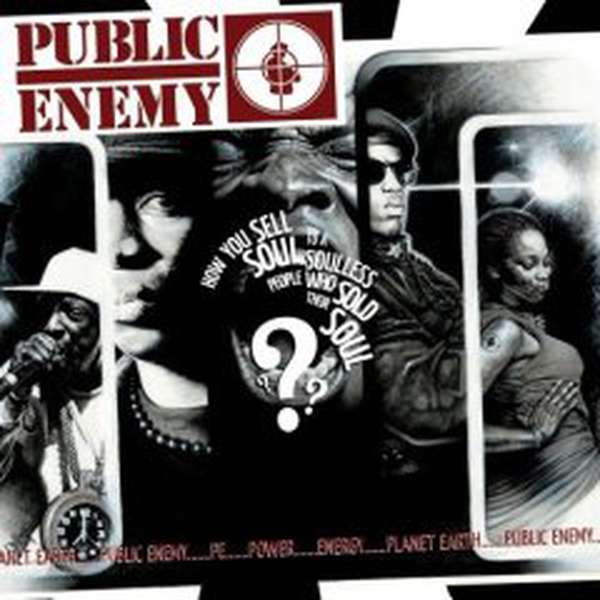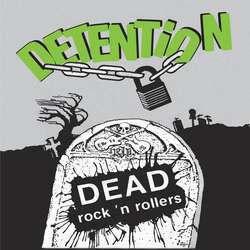Soul (noun) : A sense of ethnic pride among Black people and especially African Americans, expressed in areas such as language, social customs, religion, and music.
relevant (adjective) : Connected with or saying something important about what is being spoken about or discussed
It's been twenty years since the release ofYo, Bum Rush the Show and Public Enemy are still around despite everything the band has had to deal with, both positive and negative. The positive? Well, there's the undisputed success. The negative? Jesus, where to begin. How about today's musical climate? In 1987 when Public Enemy's first album was released, it was an anomaly. Rap music was still what "they" listened to over "there" and had yet to stretch out to the 'burbs. Twenty years later, rap music has permeated every facet of contemporary music with the sale of hip-hop music outselling every other genre (despite what the Disney company might tell you) by a margin of at least 2:1. Regardless of race, creed or national origin, your kids listen to it. Your nephews and nieces listen to it. From the little girl shopping with her mama at the Kannapolis, NC Wal-Mart to the little bastard that knocks over your garbage cans in Kapuskasing, Ontario, the hip-hop sounds and culture have permeated the farthest corners of our society.
The downside is that we're also an ADD-ridden society that tends to apotheosize only the very latest. The new artists shine bright in that charted bold typeface for only so long before they're martyred in a blaze of indifference, making way for another exalted hero-du-jour leaving the old-school veterans long forgotten in the shuffle. Sure if you're Ice-T or Ice Cube, you find other ways to earn a paycheck with movies and television, but Chuck D doesn't have an "Ice" in his name, so what's a man to do?
Charges of anti-Semitism have dogged the band since Professor Griff accused Jews of being responsible for "all the wickedness in the world." Now, I'm no expert but it seems to me that this is a pretty good definition of a bad PR move. Initially fired or leaving of his own volition (depending on who you talk to) didn't really matter as Griff appeared on later albums in some form or another. The anti-Semitic stance again reared it's ugly head on 1999's There's a Poison Goin' On's final track, "Swindler's Lust" a most unfortunately titled song aimed at record company executives.
And then we have Flavor Flav, the "Best Hype-Man in the Business," showing poor to downright brutal judgment with both his personal and professional life. The band has had to weather integrity attacks time after time after time as a result of his behavior, numerous arrests, and now numerous reality TV appearances that portray him as nothing more than a gold-toothed minstrel doing his shuck-and-jive routines for the coalition of plantation owners that is VH1. Through it all, MistaChuck has remained loyal most likely wincing his way through the process all the while dodging every guilt-by-association bullet shot his way.
So the question remains, given all the aforementioned detriments and handicaps after twenty years, does Public Enemy still matter?
The answer is unequivocally yes. Public Enemy isn't a band that's good, it's a band that is integral. We need this point of view in our lives. All our complacency and apathy can be washed away with a listen to a Public Enemy Album and How You Sell Soul to a Soulless People Who Sold Their Soul??? is no exception. There's a comfort in knowing that Chuck will always be there tell us what time it is, always holding up that mirror to our faces and reminding us exactly what we see, should we close our eyes in denial. As with every Public Enemy release, everything that's wrong with the world is what's right with the lyrics. There are artists just as earnest in their derision of life in America but nobody, and I mean NOBODY can convey it with the power and authority of Chuck D. From the opening title track to the ending refrain, How You Sell Soul to a Soulless People Who Sold Their Soul??? is everything you've ever loved about the group set to the timeliness of the morning's newspaper. Tracks like "Head Wide Shut" and "Frankenstar" are spat out with such conviction and force, you almost duck for fear of getting hit. Sadly, as always is Mr. Flav to pooch the proceedings with the ever-present throw away number, now substituting "Cold Lampin'" for the new-and-not-so-improved "Col-Leepin'." An attempt to deepen the waters is made with "Bridge of Pain," a passable shout-out to all the incarcerated brethren out there.
In an unexpected move, twenty years and coming full circle has also left Chuck feeling somewhat wistful with "The Long and Whining Road," a slower-tempo track name-checking the entire Public Enemy catalogue. Also included on the album is "Black is Back," a song long tied up in copyright infringement hell for the attempted use of a certain well-known guitar riff (guess who's) and now appears completely reworked without said riff and with an original riff in its place.
If you're a fan of Public Enemy, you'll love this album. It's nothing new or groundbreaking for the band, just a very effective topical ointment we all need to apply to the irritating rash of contemporary music.





